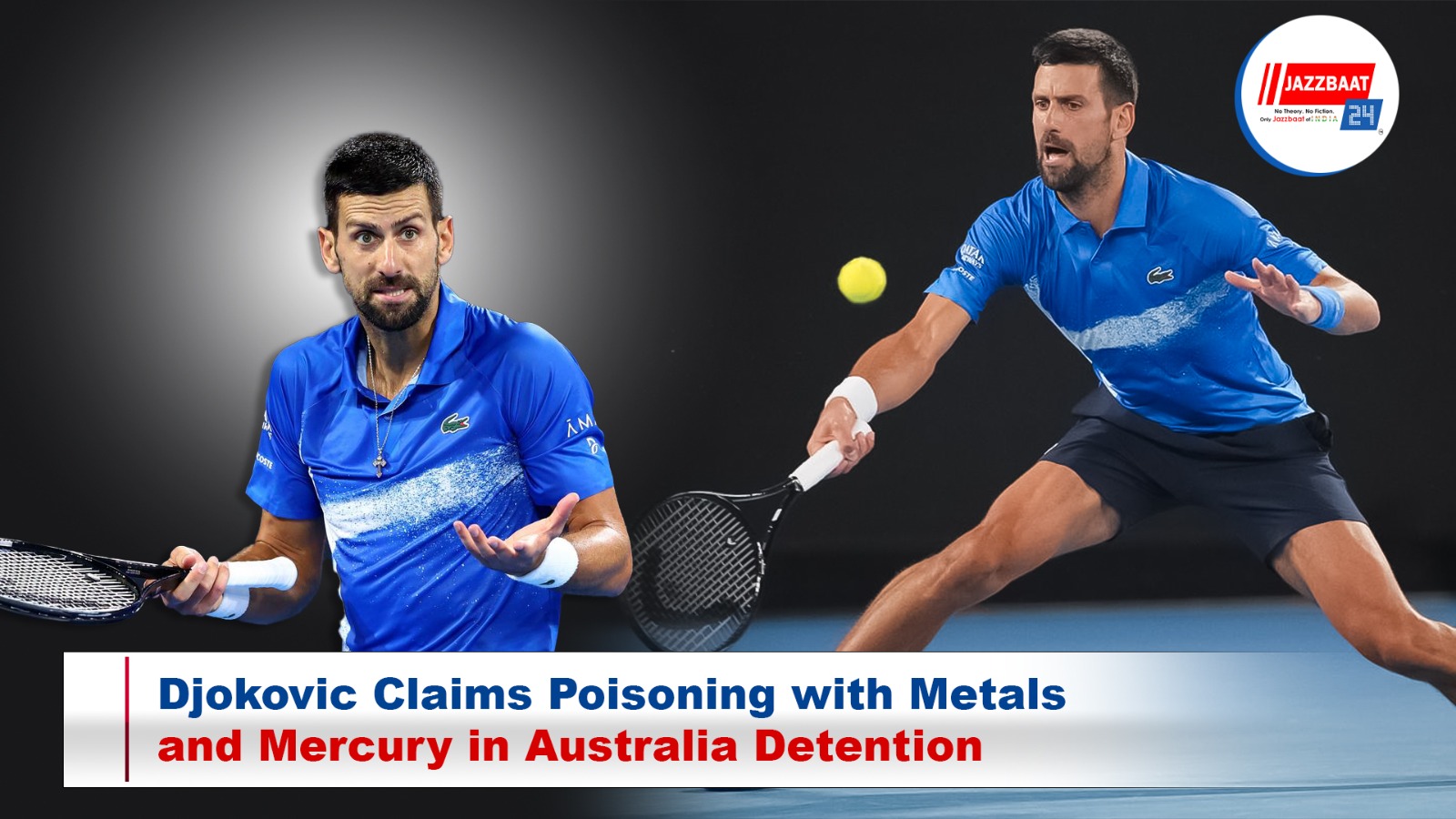
Melbourne (Australia): Serbian tennis player Novak Djokovic has made a shocking claim that he was poisoned with “lead and mercury” during his time in Melbourne before he was deported from Australia last year for not taking a COVID vaccine.
Djokovic is coming to Australia eyeing on an 11th Australian Open title, 25th Grand Slam title, most by any player in men’s and women’s categories and 100th ATP Tour level title.
It has been learned that Djokovic had refused to take the COVID vaccine and had said at the time he had the freedom to take or not take something inside his body. But before the tournament started during a pandemic, Djokovic was first detained in a Melbourne hotel and later deported because he didn’t take the jab. He couldn’t play the tournament.
In an interview with GQ, Djokovic said when he returned to Serbia he felt a high level of “heavy metal and mercury” in his body.
“I had some health issues. And I realised that in that hotel in Melbourne, I was fed with some food that poisoned me,” Djokovic told GQ as quoted by WWOS.
“I had some discoveries when I came back to Serbia. I never told this to anybody publicly but discovered that I was, I had a really high level of heavy metal. Heavy metal. I had the lead, very high level of lead and mercury,” he said.
He was in a “jail room” in Melbourne, not like other players who were in hard quarantine.
"A lot of the athletes who were doing a quarantine for like 40 days before were also locked in the room. But the difference is that obviously they were not in kind of a jail room and I was," he said.
"I had a paper with like a hundred items: from toothbrush, toothpaste, water, food, whatever. And I had to choose, tick the certain boxes, and each of these items carries a certain amount of points, and I had 60 points in total of what I was allowed to receive."
"So I did that 59 or 60 points, and I gave it to them. Twenty minutes later I come back and they say, we made a mistake, you do not have 60, you have 30. So I was like, you must be kidding me," he added.
He said he was made a scapegoat over his stance on COVID-19 vaccination and the whole thing was political because politicians couldn’t “stand” him.
"That is the actual reason why I was deported from Australia. That is what the three federal judges said in the end. Their sentence is that they are not in a position to question the discretionary right of the [immigration] minister. It was so political," he said.
"It had nothing really to do with vaccine or COVID or anything else. It's just political. The politicians could not stand me being there. For them, I think, it was less damage to deport me than to keep me there," he added.
Djokovic said he has no grudges with Australia or the Australian people but it’s his family that still holds strong feelings about the whole thing.
"For me, I am fine. I never held any grudge over the Australian people. On the contrary, actually, a lot of Australian people that I meet, I met in Australia the last few years or elsewhere in the world, coming up to me and apologising to me for the treatment I received because they were embarrassed by their own government at that point," he said.
"And I think the government's changed and they reinstated my visa and I was very grateful for that. It's a new prime minister and new ministers, new people, so I do not hold any grudge for that. I actually love being there, and I think my results are a testament to my sensation of playing tennis and just being in that country," he ended.
His first round opponent is USA’s Nishesh Basavareddy on Sunday.